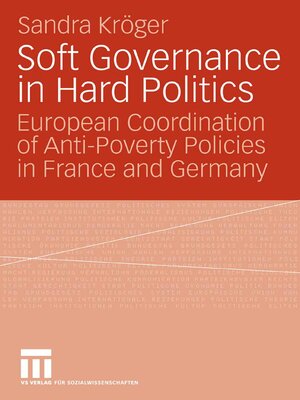Soft Governance in Hard Politics
ebook ∣ European Coordination of Anti-Poverty Policies in France and Germany
By Sandra Kröger

Sign up to save your library
With an OverDrive account, you can save your favorite libraries for at-a-glance information about availability. Find out more about OverDrive accounts.
Find this title in Libby, the library reading app by OverDrive.



Search for a digital library with this title
Title found at these libraries:
| Library Name | Distance |
|---|---|
| Loading... |
The present study addresses the governance architecture of the much debated Open Method of Coordination (OMC) in the field of social inclusion and evaluates its implementation in France, Germany and at EU-level. Based on extensive variable-based empirical research, it assesses both the effectiveness and the legitimacy of the OMC and comes to unequivocal conclusions: Due to the resistance of member states and remaining differences in underlying ideas of social justice, anti-poverty policy could not be Europeanised through the OMC which unfolds as a very weak governance architecture. The general framework of negative integration remains unchallenged by this non-binding instrument which, to the contrary of its intention, rather forecloses the possibility of supranational learning. With regard to legitimacy, the OMC supports policy-making in closed, intransparent circles of very weakly or not democratically mandated representatives and therefore does little do decrease the democratic deficit of the EU - however one of its original ambitions.







